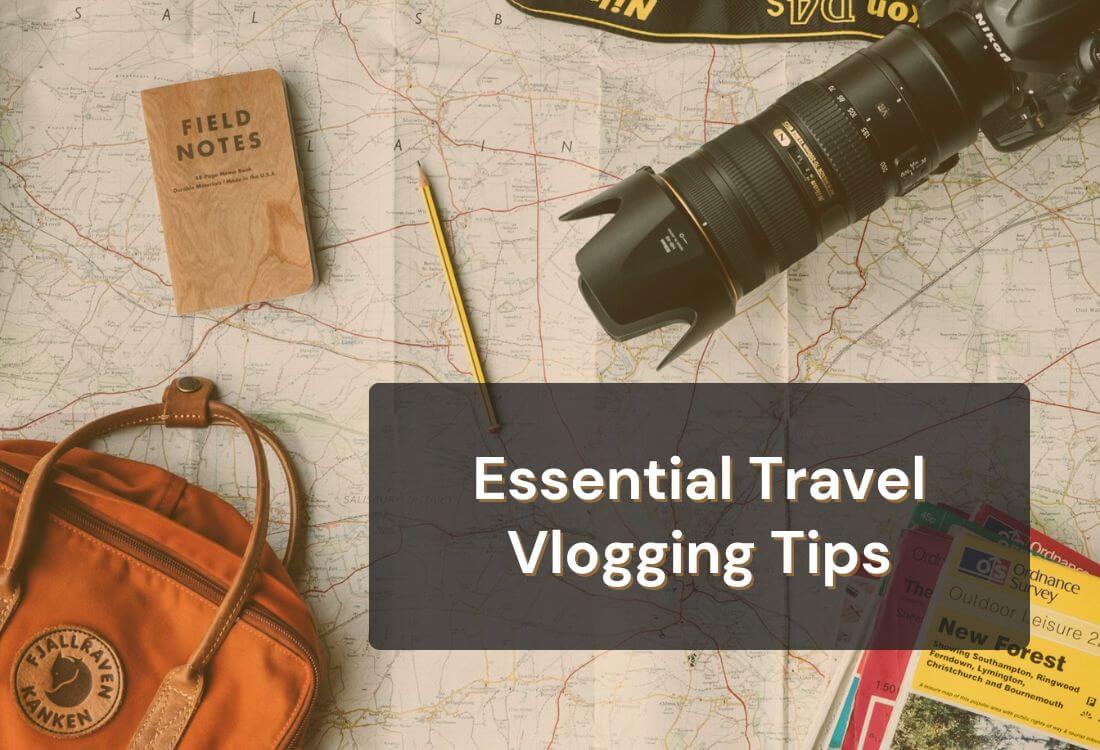How to Budget for Unexpected Expenses During Your Trip

The Importance of Financial Preparedness When Traveling
Traveling can be an exhilarating experience, but it often comes with unanticipated twists. From sudden medical emergencies to unexpected travel delays, budgeting for unexpected expenses is crucial for enjoying your trip stress-free. Every traveler knows that no journey is without its surprises, and navigating these challenges deftly can make all the difference between a memorable getaway and a vacation filled with stress.
Consider these common travel surprises that can significantly impact your wallet:
- Last-minute changes to travel plans: Flight cancellations, changed itineraries, or newly introduced travel restrictions can lead to increased costs. Imagine you’ve planned a leisure trip to New Orleans, but a storm causes unexpected cancellations, prompting you to rebook flights or accommodations at inflated rates.
- Emergency medical needs: Whether it’s a sudden illness or an injury, being away from home can complicate medical emergencies. Estimates suggest that travelers can spend upwards of $1,000 on unexpected health care abroad if they are inadequately insured.
- Additional accommodation costs: Sometimes, your planned accommodation may not work out as intended due to overbooking or unsatisfactory conditions. Having to secure alternative lodging can add extra nights to your expenses, especially in tourist hotspots where prices surge.
- Vehicle repairs or rental extensions: If you’re on a road trip across the scenic Pacific Coast Highway and your rental car breaks down, the costs can escalate rapidly. Add-ons like roadside assistance or the unexpected need for a new rental can heavily impact your travel budget.
Without a solid financial plan, these fees can add up quickly and derail your travel budget. It’s essential to prepare for the unexpected by creating a buffer that accommodates additional spending. A general rule of thumb is to allocate between 10% to 20% of your total travel budget specifically for unforeseen circumstances. This proactive approach allows you to navigate hurdles without feeling crippled by financial anxiety.
Imagine enjoying your vacation without worrying about financial pitfalls. A well-structured budget can act as your safety net, ensuring that unforeseen events don’t spoil your travel experience. To enhance this benefit, consider utilizing budgeting apps that allow you to track expenditures in real-time, helping you stay within your limits.
In the upcoming sections, we’ll break down effective strategies that will help you account for unexpected expenses while traveling. You’ll discover practical tips and tools to create a resilient budget, enabling you to explore with confidence. Whether it’s investigating travel insurance options or learning how to negotiate accommodations, being prepared can truly elevate your traveling experience.

DIVE DEEPER: Click here to learn more
Creating a Financial Safety Net
While exploring new destinations can be a delightful adventure, the unpredictability of travel can stir up anxiety when it comes to finances. One of the first steps in budgeting for unexpected expenses during your trip is to establish a robust financial safety net. This buffer not only safeguards against unforeseen costs but also promotes peace of mind as you enjoy your travels.
To create this safety net, consider these actionable steps:
- Set a Realistic Total Budget: Begin by determining a clear overall budget for your trip. This should encompass travel expenses, accommodations, food, activities, and of course, a designated amount for unexpected costs. A comprehensive budget snapshot helps you allocate resources effectively.
- Allocate a Contingency Fund: As previously mentioned, it’s wise to set aside 10% to 20% of your total budget specifically for unforeseen events. This fund will serve as your financial cushion should any emergencies arise, from medical needs to accommodation mishaps.
- Research Possible Extra Costs: Before embarking on your journey, take time to research the destination. Investigate potential extra costs based on factors such as local health care, transportation options, and even cultural experiences that may require additional spending.
- Utilize Travel Insurance: One of the most effective ways to mitigate financial risk during your travels is to invest in travel insurance. This provides coverage for a range of unexpected issues, from lost baggage to sudden cancellations. While it may feel like an additional expense, consider it a vital component of your overall budget.
Traveling in the United States can introduce its own set of challenges, particularly when exploring remote areas or national parks where access to medical facilities may be limited. Imagine finding yourself in a situation where an unforeseen injury results in unexpected medical bills. Having a budget set aside can drastically reduce the stress of such emergencies, allowing you to focus on recovery rather than worrying about when or how to pay for services.
Moreover, be sure to factor in any necessary documentation, such as vaccination records, essential medications, and insurance papers related to health coverage—especially if you’re crossing state lines or visiting international locations. Keeping these documents organized and accessible can help you respond quickly to unpredictable scenarios.
As you outline your budget, remember that flexibility is key. Keep a close eye on your contingency fund and be prepared to adjust your spending habits if unforeseen costs arise during your trip. This flexibility ensures you can accommodate unexpected changes while minimizing financial stress.
In the next section, we’ll explore practical tips on adjusting your spending during your trip and managing your budget effectively to handle surprise expenses. Stay tuned as we provide you with tools to maintain control over your finances, giving you the freedom to enjoy every moment of your adventure.
| Category | Key Features |
|---|---|
| Emergency Funds | Setting aside a specific amount for unforeseen events during your trip. |
| Flexible Payment Options | Using credit cards or traveler’s checks gives you financial flexibility in emergencies. |
| Travel Insurance | Purchasing insurance can cover unexpected medical or incident expenses that arise. |
| Budgeting Apps | Utilizing mobile applications can help you track your spending and stay on budget. |
Monitoring your trip budget effectively can significantly alleviate the stress of unplanned costs. Maintaining an emergency fund tailored specifically for travel can foster peace of mind when hiccups occur, such as needing last-minute hotel lodging or unexpected entry fees at attractions. Additionally, the prevalence of flexible payment options, such as credit cards, can serve as an immediate solution to unforeseen expenses, allowing for swift financial transactions when necessary.Moreover, securing travel insurance can prove invaluable; these policies can cover everything from medical emergencies to lost luggage, offering travelers an extra layer of security while exploring unfamiliar locales. Last but not least, integrating budgeting apps into your travel planning can assist in tracking expenses in real time, ensuring a well-structured financial strategy throughout your adventure. Each of these elements plays an integral part in promoting a smoother trip experience despite potential financial disturbances.
DISCOVER MORE: Click here to dive deeper
Staying Vigilant and Adapting Your Plans
Once you’ve established your financial safety net, the next essential step in budgeting for unexpected expenses during your trip is cultivating vigilance and adaptability. The travel landscape can shift unexpectedly, and staying aware of your surroundings and expenses can save you considerable stress and money.
Here are some strategies to help you remain alert and adapt your plans as needed:
- Track Your Daily Spending: A dedicated travel budget tracker can be your best friend on the road. Use budgeting apps like Mint or You Need a Budget (YNAB) to monitor daily expenses. Keeping tabs on your spending in real-time allows you to identify if you’re veering off course from your budget and gives you the opportunity to adjust spending habits early.
- Embrace Local Insights: Engaging with locals can present invaluable tips about your destination. Whether it’s finding the cheapest places to eat or avoiding tourist traps that tend to have inflated prices, local insights can not only enrich your experience but also help manage unexpected expenses. Don’t hesitate to ask waitstaff, hotel staff, or even fellow travelers about hidden costs in the area.
- Maintain Flexible Travel Dates: If your plans allow it, flexibility can lead to significant savings. Costs for accommodations, flights, and activities can vary drastically from one day to another. Tools like Google Flights can show you the cheapest days to fly, while apps like Hopper predict future price trends. This adaptability can help you avoid overspending due to unforeseen price hikes.
- Utilize Free or Low-Cost Activities: Diversifying your itinerary to include a mix of paid and free activities can alleviate the pressure on your budget. From parks and outdoor adventures to free local festivals or community events, these options can fill your days without draining your finances. Websites such as Eventbrite or Meetup can guide you to complimentary happenings in any city.
Purchasing tickets or booking experiences in advance can also be a prudent decision. Many attractions offer discounts for early bookings, sometimes saving you upwards of 20%. However, weigh this benefit against the risk of needing to reallocate funds due to emergency expenses. The key is to find a balance, ensuring that your pre-booked options align with how your budget is unfolding during the trip.
Another layer of protection against potential costs is to keep an eye on exchange rates if you are traveling internationally. Using credit cards that do not charge foreign transaction fees can provide a more favorable exchange rate than currency exchange services. Additionally, apps like XE Currency can help you stay updated on current rates, allowing for better planning and budget adherence while shopping or dining out.
Throughout your journey, remain cognizant of your emotions and factors affecting your decisions. Stress or fatigue can lead to impulsive spending as a means of comfort during travel. Recognize when these feelings arise and consider opting for more economical choices instead. A simple meal from a local market can often be as satisfying, if not more so, than dining at a pricey restaurant.
Regular reevaluation of your finances while on the road empowers you to pivot your plans effectively. Unexpected events can introduce additional costs, but maintaining a proactive approach can provide comfort and security as you navigate through your travels.
In the next section, we will explore how to apply these budgeting principles to specific scenarios you might encounter during your trip, offering practical illustrations and tailored advice to help you stay on top of your budget, no matter the unpredictability ahead.
DIVE DEEPER: Click here to discover why adaptability is key in travel
Conclusion: Navigating the Unexpected with Confidence
In the world of travel, the only certainty is uncertainty. As you venture into new territories and experiences, being prepared for unexpected expenses is crucial to ensure a smooth and enjoyable journey. By establishing a financial safety net, tracking your spending, and remaining flexible, you equip yourself with the tools necessary to navigate any curveballs that come your way.
Remember, the key to effective budgeting lies not just in planning ahead, but also in the ability to adapt. Engaging with locals can open doors to affordable experiences and hidden gems, while exploring a mix of activities—both free and paid—can help balance your expenses without compromising enjoyment. Always be mindful of exchange rates during international travels and utilize technology to stay on top of your finances.
Moreover, maintaining an awareness of your emotional state while traveling can play a pivotal role. Travel fatigue or high-stress situations often lead to impulsive spending, which can unravel your budget. By recognizing these triggers, you can choose more economical options that still deliver satisfaction.
Ultimately, budgeting for unexpected expenses is about cultivating a mindset of preparedness and adaptability. With every trip, you gain valuable experience that enhances your understanding of managing finances on the go. By prioritizing these strategies, you can embark on your adventures with confidence, knowing you’re well-equipped to handle anything that may arise along the way. Safe travels, and may your journeys be filled with discovery and joy, all while staying within your budget!


